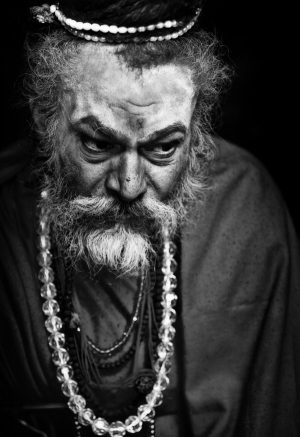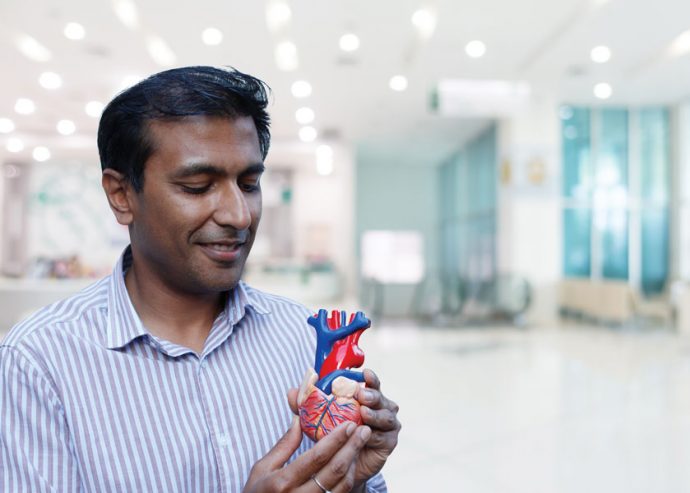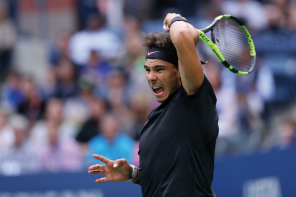Let’s get one thing straight: Sanjay Gupta, M.D., is not Sanjay Gupta, M.D. Or rather, Sanjay Gupta the cardiologist is not Sanjay Gupta the neurosurgeon and CNN medical reporter.
Not that the Twittersphere necessarily knows that.
Earlier this year, the CNN’s Gupta sparked controversy when he said President Donald J. Trump had heart disease. Cardiologist Gupta — who practices in York, England, and will headline the Heart Health Weekend Aug. 4 and 5 at the Renaissance Westchester Hotel in Harrison — felt the heat in the form of hate tweets and email.
How dare he pass judgment on someone who was not even a patient: That was the general tenor of the criticism. But how dare they criticize him when they weren’t even speaking to the right Dr. Gupta: It’s a response that Gupta offered not in indignant anger but in humorous acceptance.
“There’s a huge focus on being perfect,” he says during our Skype interview. “What we should be aiming to do is to be human. It goes hand-in-hand with being kind, imperfect and vulnerable. We’re so busy trying to get ahead that we push others out of the way. We should be concentrating on giving our time and our love. Being happy is really important.”
By now you realize that Gupta — yes, we’re still talking about the cardiac guy — is not your average doctor but more of a philosopher-physician. A consultant cardiologist with specialist interest in cardiac imaging at York Teaching Hospital, he has more than 200 videos on his YouTube channel, with subjects ranging from blood thinners to palpitations. Though he has more than 35,000 subscribers, he doesn’t make money off of this. Still, he says, “It’s very enriching. I feel I’m growing as a human being.” He also plays racket sports like badminton, tennis and squash; plays the saxophone and mouth organ; studies piano; and speaks several languages, including Hindi, Swahili and French. Did we mention he’s a gifted photographer, a craft he honed while training in cardiac imaging at Harvard Medical School? He’s been a National Geographic Travel Photographer of the Year and a finalist in the Wanderlust Travel Photo of the Year competition.

It’s all part of what he calls “the wholehearted life,” one that takes into account balance and moderation as the means to stress reduction as well as good sleep, nutrition and exercise.
“By far to my mind the biggest killer worldwide is stress,” he says. “It contributes in huge ways to destroying quality of life. You eat more. You don’t exercise. You become depressed, which leads you to eat more….It’s a vicious cycle.”
One set in motion by any number of factors, Gupta says, not the least of which is our attitude toward what makes up a successful life.
“We’re breeding an abundance of workers,” he says. “You work hard so you can have more money to play hard but then you have to earn more money.
“We’re not allowing ourselves to be compassionate to ourselves. We treat this as a sign of weakness. And if you lose your compassion, you lose the most precious commodity — which is time.”
Time to be with others in the moment. “If you wait until you’re 70, your children will have fled and your pension will have eroded … So hang on, let’s think things out. Why do we have to work hard, play hard and spend more than we have?
“When I was a boy, we would drive to the video store and you’d save your money and wait all week to go to the store and maybe you’d watch that video several times. Now there are a million options.”
Conversely and ironically, these have not led to continuous fulfillment but to boredom, which fosters depression.
“Clutter also causes a huge amount of anxiety. Spending more, buying more, accumulating makes you more anxious.”
What is crucial, he says, are your relationships, nurtured in the actual world rather than the virtual one. “Loneliness kills more people than any other condition.”
He talks of his own immediate family with characteristic affectionate humor:
“My long-suffering wife, Neeti, is hugely patient with me and, without her support, nothing I do would ever have been possible.” Their two children — a son, Armaan, 14, and a daughter, Navya Naveli, 11, “are both at that point in their lives when they are quiet and surly and obsessed with their phones,” he adds with a smile.
Nonetheless, stay engaged with people, Gupta says. Manage your expenses. Declutter. Sleep more. Sleep better. Only 20 percent of people say they are refreshed by sleep. One in three suffers from insomnia, one in five from sleep apnea, which is related to obesity. These are alarming statistics when you consider that you can go three times as long without food as you can without sleep, Gupta says. “(Sleep deprivation) is the worst form of torture. It’s impossible to lose weight if you don’t sleep well. The hormones aren’t in balance and there is a predilection for calorie-rich food. Lack of sleep is associated with every form of heart disease. If you don’t sleep right, there’s bloating and it feeds into indigestion, depression and migraines.”
The other components in a wholehearted life are those that probably first come to mind — nutrition and exercise. Gupta is “absolutely” a fan of the Mediterranean diet, a plant-based diet that emphasizes fruits and vegetables and includes whole grains, nuts, olive oil, fish, poultry, low-fat dairy and red wine (in moderation).
“I’m an everything-in-moderation guy,” he says. “You have to do what feels good.” These are guiding principles for him when it comes to exercise.
“The majority of diseases have deep roots in inflammation. Exercise is the core in combating it. But it shouldn’t be extreme.” He sees bodybuilding, for example, as an extreme that can lead to inflammation and medical problems. A half-hour cardio workout (walking, swimming, biking) five times a week is a good goal.
Born in Zambia and raised in Kenya, Gupta came to his interest in the heart at a tender age. He was about 6 when his father suffered a nonfatal heart attack.
“It was very scary. My father was this godly person in my life and the doctors were nice to us, kind to us. These were our heroes.”
He studied at The Charing Cross and Westminster Medical School and the Royal College of Physicians, both in London, and received his MD from The University of Manchester, where he did a research fellowship in heart failure medicine. In 2009, he received a fellowship to the Brigham and Women’s Hospital in Boston. While there, he trained in cardiac magnetic resonance imaging, cardiac CT and cardiac PET at Harvard Medical School. After being appointed as a consultant cardiologist at York Hospital in 2010, he helped develop cardiac imaging services, including stress echocardiography, transesophageal echocardiography and cardiac CT.
The more he practiced — and reassured nervous-Nellie friends — though, the more he realized that there is only so much you can control in health and life, certainly not genetics, luck or the idea that we will all age and die.
“We must do what we can to make the quality of life better now and do that as long as we can. Living a wholehearted life is the best any of us can do. If we can’t do that, then we will have lived an unfulfilled life.”
For more, visit yorkcardiology.co.uk.






This is a wonderfully written article about Dr. Sanjay Gupta. I’m so proud and thankful that God/Fate allowed him to come into my life. I’ve learned so much from him and not just the complexities of heart disease. I’ve learned life is a privilege, how to live and feel the joys and appreciation of it. I’ve learned I have some responsibility for my own health. I’ve never looked at a doctor through these lenses or appreciated them more. I’m sure he’s impacted many people so he is more than just a doctor, “more than just medicine”. He’s a gift, thanks to his father who was also a doctor and who motivated him to be who he is. I wish him a long life and career, every success and happiness life has to offer and I thank God for all the people he’s nurtured.